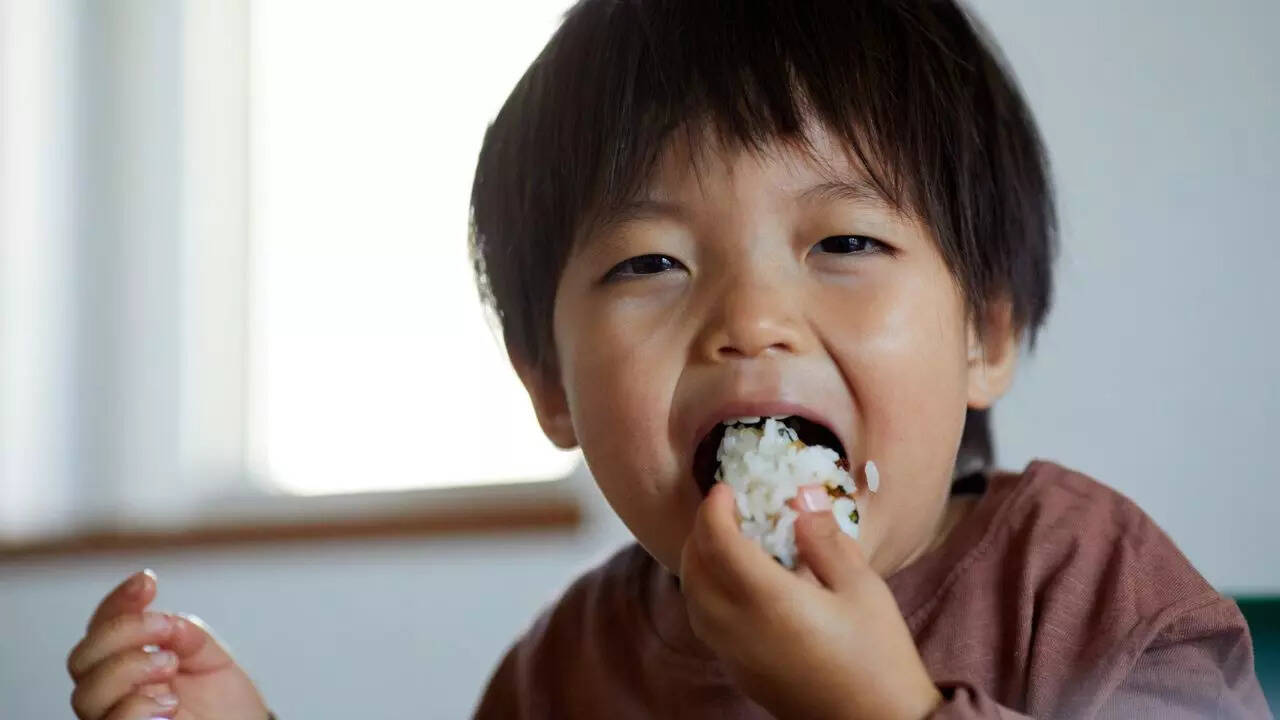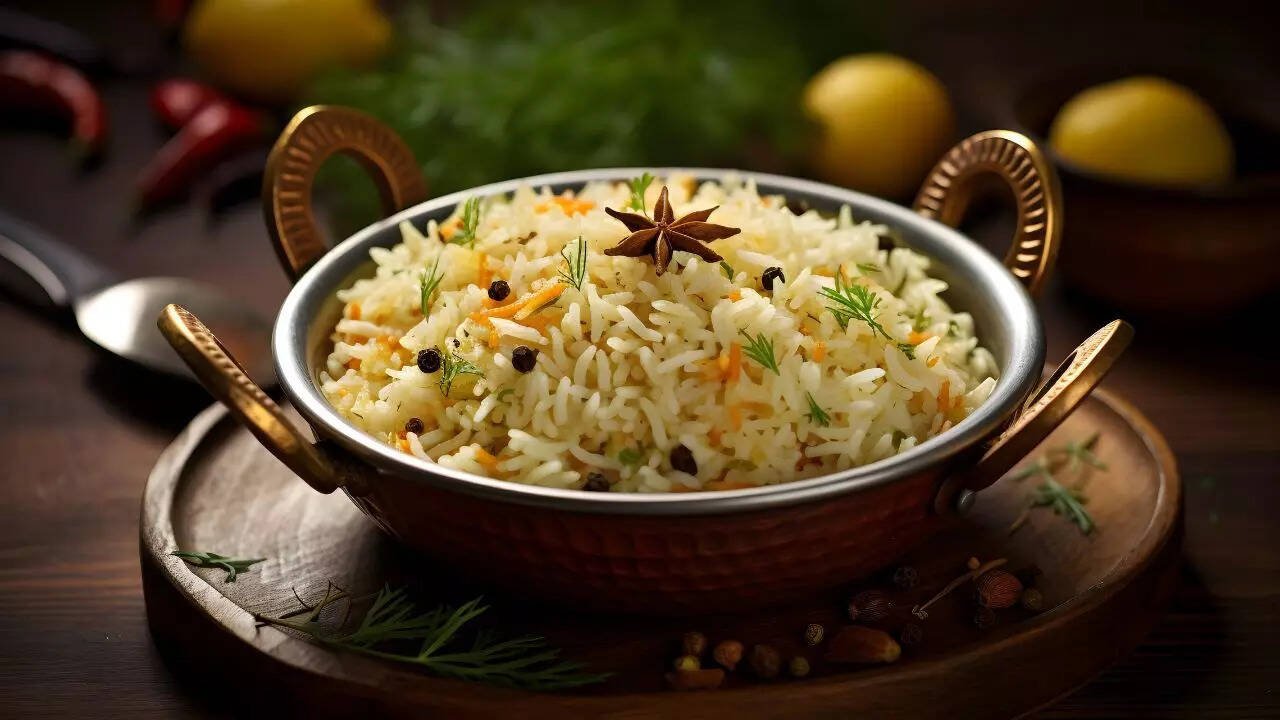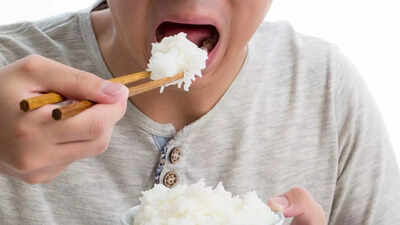Many of us know the feeling: a full plate of rice at lunch followed by a wave of drowsiness that makes it hard to keep our eyes open. This phenomenon, often referred to as the desi carb coma, is more than just an old wives’ tale. Science has a clear explanation for why rice can make you feel sleepy after a meal.A study published in PLOS ONE examined Japanese adults and found that higher rice consumption was linked to better sleep quality and longer sleep duration. Researchers believe that rice, being a high-glycaemic index (GI) food, rapidly raises blood sugar, which helps the brain absorb more tryptophan, an amino acid that gets converted into serotonin and melatonin, the hormones that regulate sleep.Another research published in the Frontiers in Nutrition, including a meta-analysis of carbohydrate-rich meals, found that carbs not only help you fall asleep faster but may also change the structure of your sleep by reducing deep, restorative sleep.So, is rice really to blame for your afternoon slump? Let us break down the science of why eating rice makes you drowsy.
Rice and sleepiness : The insulin–tryptophan connection
When you eat rice, your blood sugar rises quickly because of its high glycaemic index. In response, your body releases insulin to manage glucose. This insulin surge helps most amino acids enter the muscles, but not tryptophan. As a result, tryptophan levels increase in your blood, making it easier for it to cross into the brain.Inside the brain, tryptophan is converted into serotonin, a neurotransmitter that promotes relaxation. Serotonin then converts into melatonin, the sleep hormone. This chain reaction is one of the main reasons you feel drowsy after a rice-heavy meal.
Rice and sleep quality: What studies reveal

The PLOS ONE study highlighted that people with higher rice consumption reported better overall sleep quality and longer sleep times compared to those eating bread or noodles. This suggests that rice not only makes you feel sleepy but also influences how well you sleep later at night.However, a 2022 meta-analysis on carbohydrate-rich meals found a different side to the story. While carbs shorten the time it takes to fall asleep, they may also reduce deep slow-wave sleep and increase lighter REM sleep. This means that rice might help you drift off quickly, but the sleep may not always be as restorative.
Rice and postprandial somnolence: The carb coma explained
The medical term for food-induced sleepiness is postprandial somnolence. It is not unique to rice, as any heavy, carb-rich meal can cause it. After eating, blood is diverted toward the digestive tract, and the parasympathetic nervous system is activated to aid digestion, which naturally makes you feel more relaxed and less alert.Combine this with the hormonal changes triggered by rice, and you get the classic carb coma, a strong urge to nap after your meal.
Rice, health, and when drowsiness may signal more
For most people, feeling a little sleepy after rice is harmless. But if this happens often, even with small portions, it could be a red flag for insulin resistance or type 2 diabetes. Persistent post-meal fatigue may also be linked to sleep apnea, thyroid issues, or other metabolic concerns. In such cases, a check-up with a healthcare professional is advisable.
How to enjoy rice without feeling too sleepy

If you love rice but do not want the afternoon slump, here are practical tips backed by research:
- Pair rice with protein and fibre: Adding lentils, beans, or lean meats slows digestion and prevents extreme sugar spikes.
- Choose brown or mixed rice: Whole grains have a lower GI, which means a slower, steadier release of energy.
- Control portions: A moderate serving can prevent an overwhelming insulin surge.
- Move after meals: A light walk or stretching improves circulation and keeps you alert.
- Stay hydrated: Dehydration worsens fatigue, so drink water before and after your meal.
Yes, eating rice can make you feel drowsy, and science backs up this common experience. High-GI carbs like rice raise blood sugar, trigger hormonal changes, and activate the brain pathways that promote sleepiness. While this can be helpful at night, it may be less welcome in the middle of a busy workday.The good news is that you do not need to cut rice from your diet. By managing portions, balancing meals with protein and fibre, and staying active after eating, you can enjoy your favourite staple without nodding off at your desk.Disclaimer: This article is for general informational purposes only and is not a substitute for professional medical advice, diagnosis, or treatment. Always seek the guidance of a qualified healthcare provider regarding any medical condition or lifestyle change.Also read| How to cook spinach the right way for healthy and delicious meals











